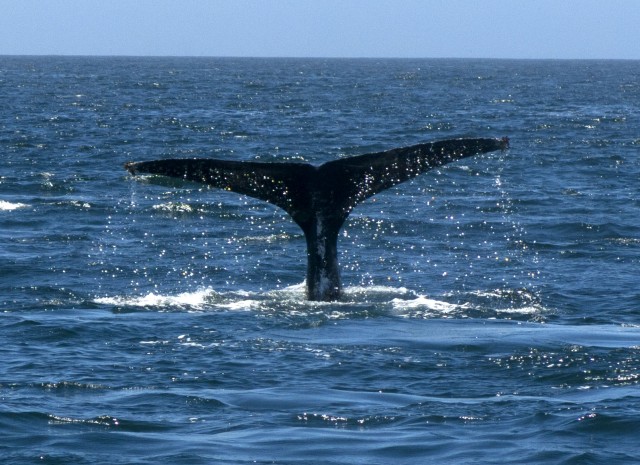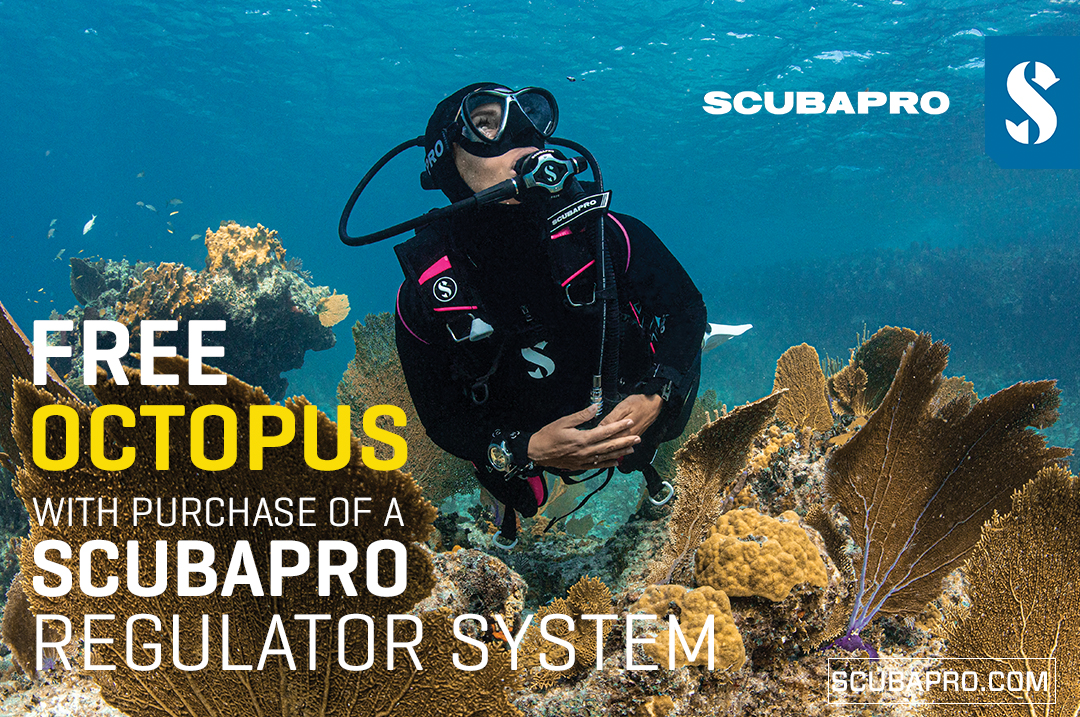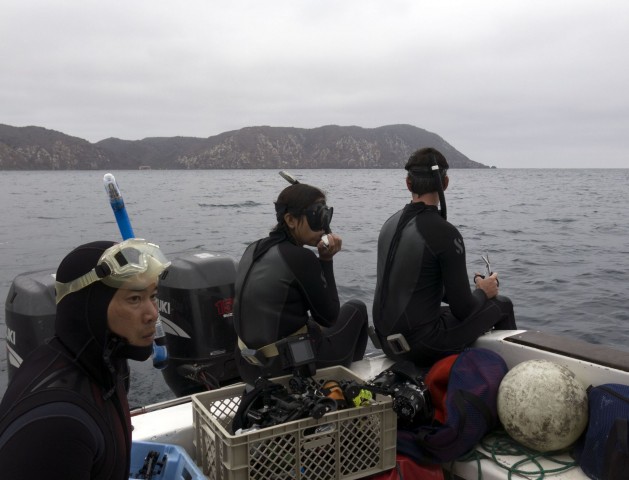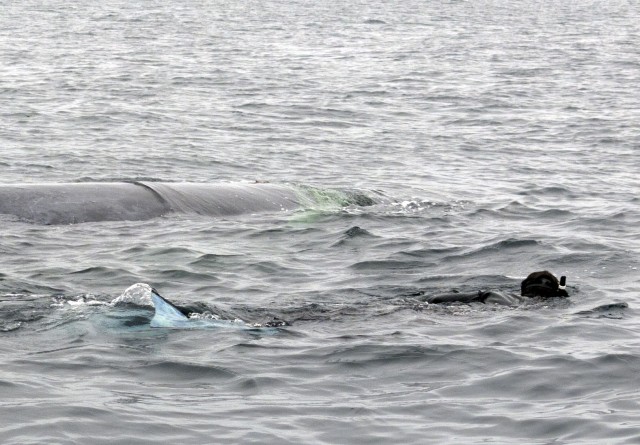News
Not all Entanglements End Happily

Don’t you love seeing whale and animal rescues on YouTube or on TV or the News? I know I do. Like the one with the whale that was freed and thanked her saviors by giving them a breaching display for over an hour? Not all of these stories end happily, though. In fact, most of them don’t.
Most ocean lovers or divers dream of saving an animal in dire circumstances. Fish hooks, plastic, fishing nets, fishing lines… they are all enemies of our underwater friends. When these items are found in a national park, where no fishing is supposed to be permitted, it is that much more tragic. The number one killer of our cetacean and fishy friends? Fishing nets. Dolphins, whales, mantas, whale sharks…. these are large species who are in grave danger from these carelessly placed nets by fishermen who do not care about the possible casualties of other species. Did you know that the bodies of 300,000 whales and dolphins wash ashore each year, killed by fishing nets? Just try to imagine the hundreds of thousands who disappear into the depths… the ones that don’t wash ashore. And what a horrible death – long and drawn out, suffering from exhaustion, from asphyxia, and from the terrible fear and horror of being unable to get free.
I am in Ecuador at the moment, volunteering as a diver to take Identification photos of Manta Rays, Humpback Whales, Mola Molas, and turtles for the Marine Megafauna Foundation, and yesterday was quite a day for whale sightings. The Humpbacks were out in force – blowing and breaching! How can someone fail to be touched by the sight of pods of whales with their babies, waving, flipping, breaching? Right now, the whales are migrating through this area of Ecuador, off the coast of Puerto Lopez, a fishing village where 3 major currents converge. We go out daily in a boat to dive Isla de la Plata, where Mantas aggregate in huge numbers at this time of year. The sight of the whales coming through is an incredible bonus to our work every day. Until yesterday.
Yesterday it became personal. Our group came across an adult Humpback Whale, tangled in fishing net over it’s mouth, eyes and blowhole. The odds of freeing it were slim, and we had to choose: snorkel with feeding mantas on the surface (always exciting), or try to free the whale? Of course we went for the whale. Two of the foundation’s leaders, Andrea and Janneman, suited up and jumped in to help. They went in four times, managing a few cuts of the net, but the whale was just too fearful to allow them to help. It was heartbreaking, watching this magnificent animal struggling to survive. We were at Isla de la Plata, in the heart of the Machalilla National Park located in Ecuador, a park which forbids fishing for 2 miles out in every direction from the island. There were a dozen fishing boats. At least. They are there every single day. And not one of them stopped to help. In fact, we saw one of the boats hook a manta (they released it, but they usually leave the hook and line in the animal).
You know, putting aside our compassion for other creatures, (especially animals of such high intelligence and social behavior), humpback whales, mantas, whale sharks, and dolphins bring in tremendous amounts of tourist dollars. They are worth a lot more in dollars in the ocean, unharmed, than they are dead. The deaths of these animals are not just senseless and cruel, they are harmful to the local economies they could be supporting! If you want to help, and I hope you do, please go to the Marine Megafauna Foundation’s website here or visit us.whales.org/support-us-1. Adopt an animal, be a volunteer, boycott businesses who sell illegal products! I can tell you this: I know the folks at MMF personally, and every dollar goes to research and helping these animals. No one is living the high life in this organization.
It was not possible to save the animal. The danger to Andrea and Janneman was immense….a full grown humpback whale could break a person’s bones easily; these animals are huge, and a fearful dive could drown a person who could not free their hand from the net in time. We were all saddened to leave the animal, but there was nothing further to do. The other volunteers – Ralph, Larry, Peg and Tina – had been involved here in a successful whale rescue a few years ago… but yesterday there was no happy ending.
News
Dive Worldwide Announces Bite-Back as its Charity of the Year

Over the next 12 months, specialist scuba holiday company Dive Worldwide will be supporting Bite-Back Shark & Marine Conservation with donations collected from client bookings to any one of its stunning dive destinations around the world. The independently-owned operator expects to raise £3000 for the UK charity.
Manager at Dive Worldwide, Phil North, said: “We’re especially excited to work with Bite-Back and support its intelligent, creative and results-driven campaigns to end the UK trade in shark products and prompt a change in attitudes to the ocean’s most maligned inhabitant.”
Bite-Back is running campaigns to hold the media to account on the way it reports shark news along with a brand new nationwide education programme. Last year the charity was credited for spearheading a UK ban on the import and export of shark fins.
Campaign director at Bite-Back, Graham Buckingham, said: “We’re enormously grateful to Dive Worldwide for choosing to support Bite-Back. The company’s commitment to conservation helps set it apart from other tour operators and we’re certain its clients admire and respect that policy. For us, the affiliation is huge and helps us look to the future with confidence we can deliver against key conservation programmes.”
To launch the fundraising initiative, Phil North presented Graham Buckingham with a cheque for £1,000.
Visit Dive Worldwide to discover its diverse range of international scuba adventures and visit Bite-Back to learn more about the charity’s campaigns.
MORE INFORMATION
Call Graham Buckingham on 07810 454 266 or email graham@bite-back.com
Gear News
Scubapro Free Octopus Promotion 2024

Free Octopus with every purchase of a SCUBAPRO regulator system
Just in time for the spring season, divers can save money with the FREE OCTOPUS SPRING PROMOTION! Until July 31st SCUBAPRO offers an Octopus for free
with every purchase of a regulator system!
Get a free S270 OCTOPUS with purchase of these combinations:
MK25 EVO or MK19 EVO with A700
MK25 EVO or MK19 EVO with S620Ti
MK25 EVO or MK19 EVO with D420
MK25 EVO Din mit S620Ti-X
Get a free R105 OCTOPUS with purchase of the following combinations:
MK25 EVO or MK19 EVO with G260
MK25 EVO or MK17 EVO with S600
SCUBAPRO offers a 30-year first owner warranty on all regulators, with a revision period of two years or 100 dives. All SCUBAPRO regulators are of course certified according to the new European test standard EN250-2014.
Available at participating SCUBAPRO dealers. Promotion may not be available in all regions. Find an authorized SCUBAPRO Dealer at scubapro.com.
More information available on www.scubapro.com.
-

 News3 months ago
News3 months agoHone your underwater photography skills with Alphamarine Photography at Red Sea Diving Safari in March
-

 News3 months ago
News3 months agoCapturing Critters in Lembeh Underwater Photography Workshop 2024: Event Roundup
-

 Marine Life & Conservation Blogs3 months ago
Marine Life & Conservation Blogs3 months agoCreature Feature: Swell Sharks
-

 Blogs2 months ago
Blogs2 months agoMurex Resorts: Passport to Paradise!
-

 Blogs2 months ago
Blogs2 months agoDiver Discovering Whale Skeletons Beneath Ice Judged World’s Best Underwater Photograph
-

 Gear Reviews2 weeks ago
Gear Reviews2 weeks agoGEAR REVIEW – Revolutionising Diving Comfort: The Sharkskin T2 Chillproof Suit
-

 Marine Life & Conservation2 months ago
Marine Life & Conservation2 months agoSave the Manatee Club launches brand new webcams at Silver Springs State Park, Florida
-

 Gear Reviews3 months ago
Gear Reviews3 months agoGear Review: Oceanic+ Dive Housing for iPhone


















